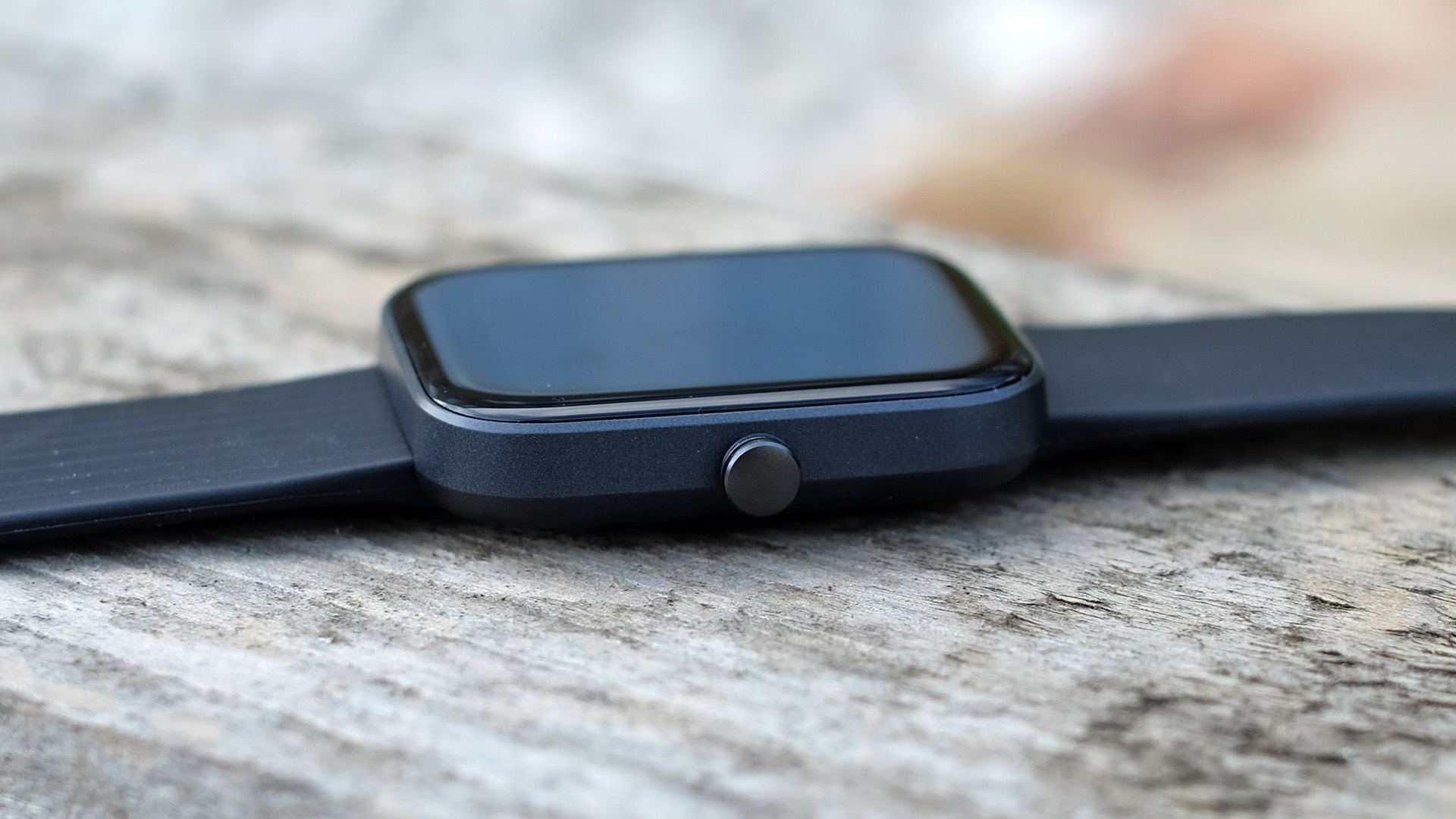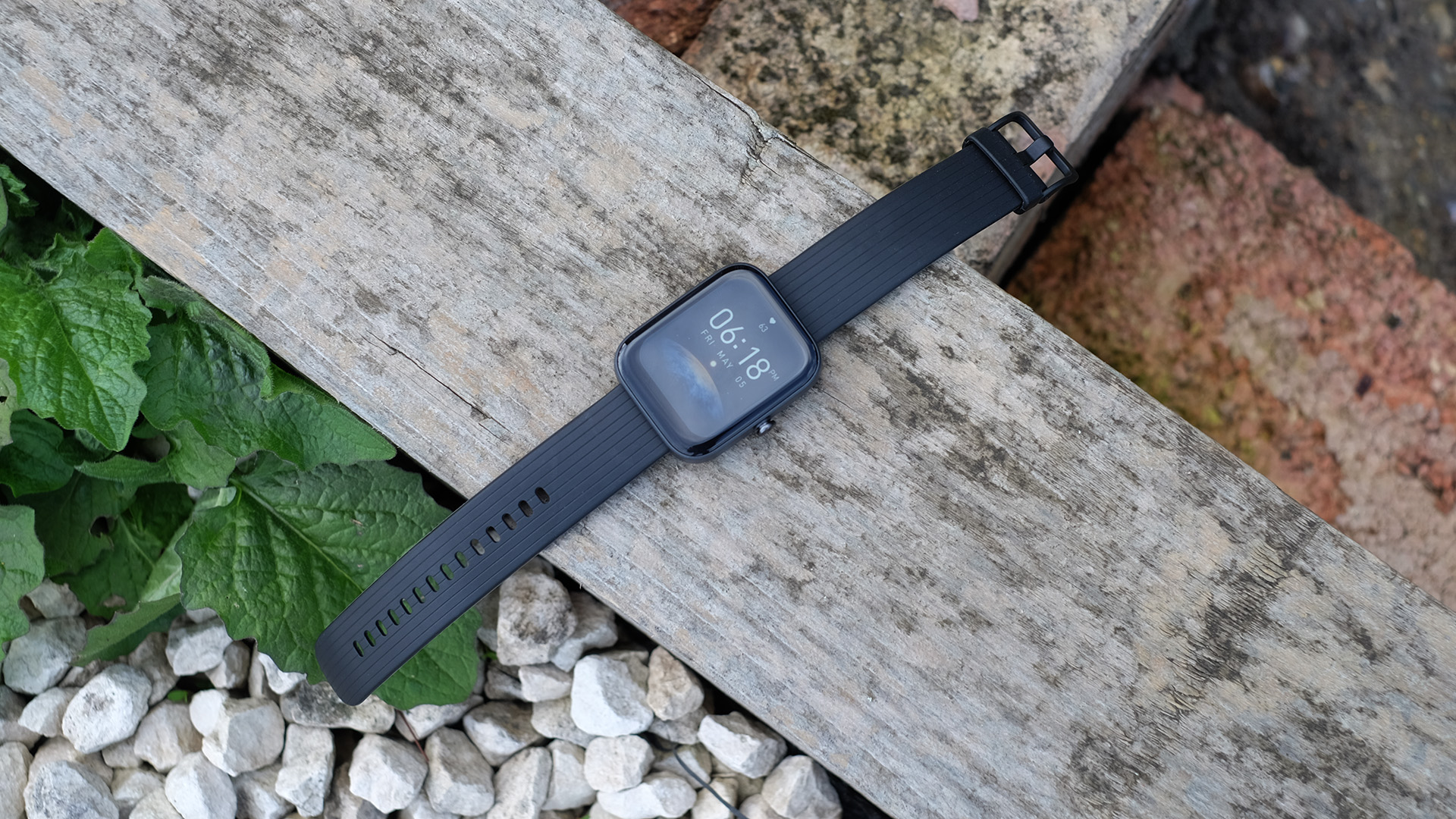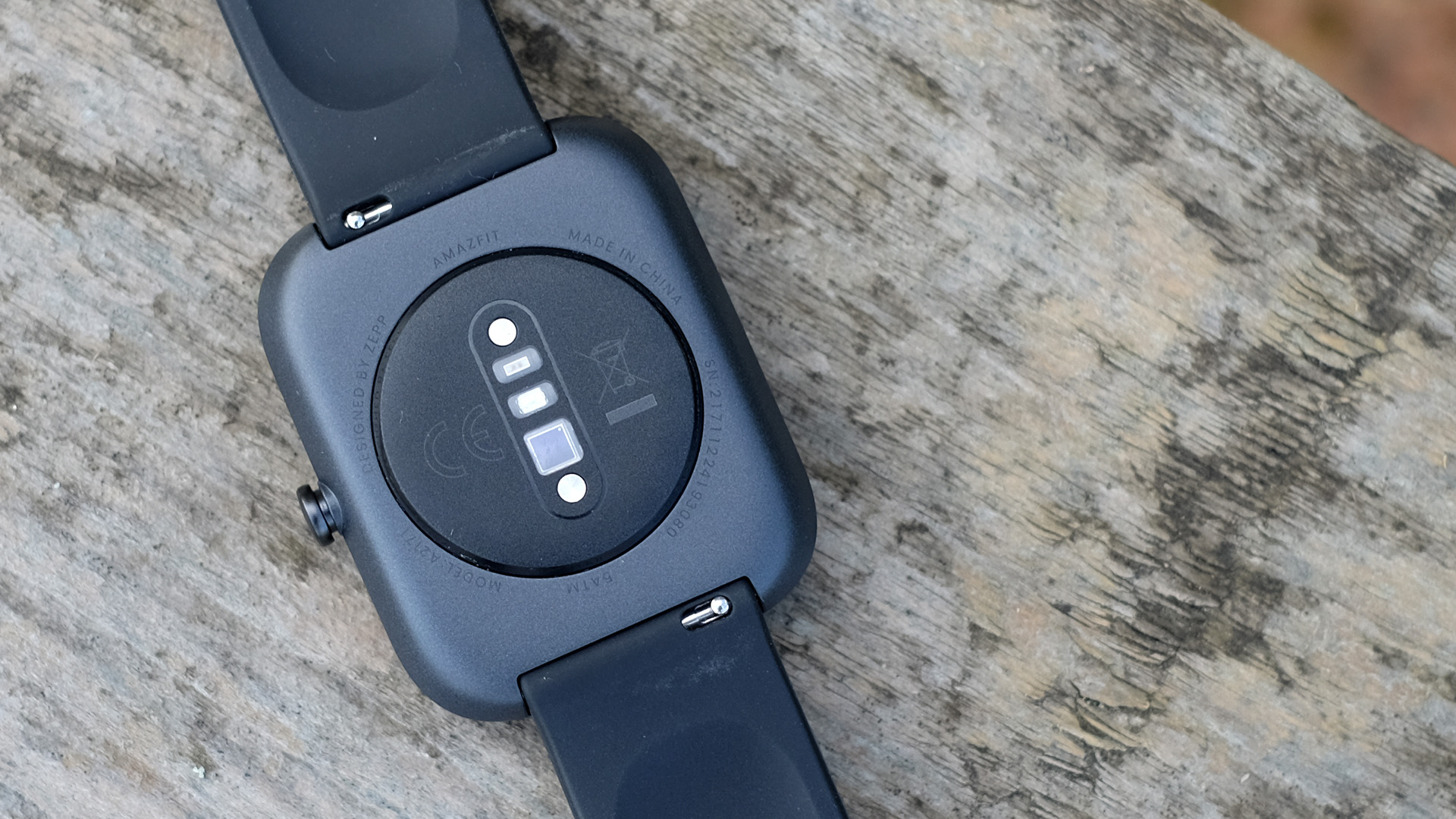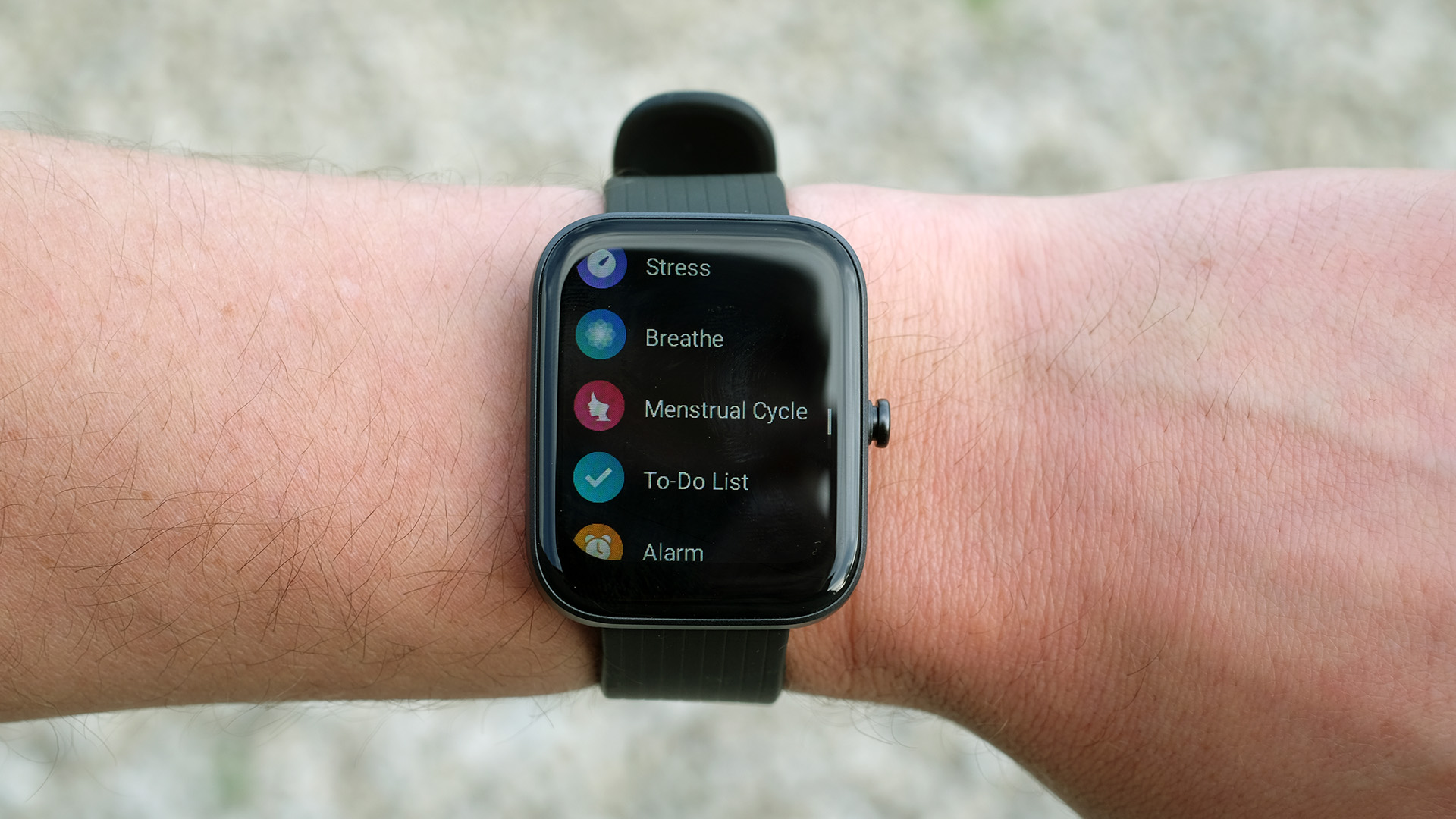TechRadar Verdict
The Amazfit Bip 3 Pro is an affordable fitness watch with full GPS, and its location tracking is great. In a couple of areas the budget may have been spread a little too thinly, but what you get for your money is compelling.
Pros
- +
Impressive built-in GPS
- +
Affordable
- +
Light and comfortable
Cons
- -
Heart rate accuracy is very patchy
- -
Elements of the build and screen seem cheap
- -
Manual brightness control is annoying
Why you can trust TechRadar
Amazfit Bip 3 Pro: One minute review
The Amazfit Bip 3 Pro is an affordable fitness tracker and one of the best cheap running watches, with all the basics you could ask for. It has an optical heart rate reader. It has full-on GPS, unlike the non-Pro edition of the Bip 3. Want phone-free run tracking? You got it.
And where Fitbit offers a small lozenge of a display for this sort of money, the Amazfit Bip 3 Pro looks a lot like a smartwatch.
The bad bits? It comes across cheaper in person than it does in photos. The display is compromised on multiple fronts. And while the location tracking is really quite excellent based on our testing, heart rate accuracy is mediocre.
What does this add up to? A solid affordable fitness tracker, although the Honor Band 7 pulls off budget gloss better.
Amazfit Bip 3 Pro: Specifications
| Component | Amazfit Bip 3 Pro |
| Price | $69.99 / £69 / AU$119 |
| Dimensions | 44.1 x 36.4 x 9.65mm |
| Weight | 33.2g |
| Case/bezel | Plastic + middle frame spraying |
| Display | 240 x 280px, 2.5D tempered glass |
| GPS | Assisted GPS |
| Battery life | 14 days, 7 days heavy use |
| Connection | Bluetooth 5.0 |
| Water resistant? | Yes, 5ATM |
Amazfit Bip 3 Pro: Price and Availability
- $69.99 in the US
- £69.99 in the UK
- AU$119 in Australia.
Amazfit launched the Bip 3 Pro in June 2022 as one of its cheaper fitness watches. It costs $69.99 / £69 / AU$119.
This is just $10/£20 more than the standard Amazfit Bip 3, which is a largely similar watch, but one that lacks full GPS. It uses Connected GPS instead.
Amazfit Bip 3 Pro: Design and Display

- Low weight equals high level of comfort
- Screen is basic
- Feels cheap in places
The Amazfit Bip 3 Pro is a watch made to look a little like an Apple Watch, without going all the way and becoming a potentially embarrassing low-rent clone. It has the classic rounded square-ish display of Apple’s smartwatch, but the dimensions are different and the side button is in a completely different place.
Sign up for breaking news, reviews, opinion, top tech deals, and more.
Its display glass looks great in photos, particularly when papped with a wide aperture lens, but don’t come to the Amazfit Bip 3 Pro expecting it to drip in that luxurious smartwatch sense of quality. The casing is plastic, and the side button’s click feels cheap. This isn’t a rotary controller either. While the crown turns, doing so does nothing.
However, the simple construction does lead to super-low weight. At just 35g, including strap, the Amazfit Bip 3 Pro is a watch you can forget you are wearing. In a positive sense.
It’s a 5ATM watch too, so you’re rarely need to take it off — including when you go swimming.
Amid all this breezy low-maintenance stuff, the screen stands out as a potential irritant. It does not have an ambient light sensor, meaning you need to manually alter the brightness level when you go out for a workout.
You will need it maxed, too, as the Amazfit Bip 3 Pro can barely get bright enough for solid visibility on a sunny day. This is less of an issue with the OLED Honor Band 7.
As with most more smartwatch-like designs we’ve tested at this level, the Amazfit Bip 3 Pro has an LCD screen. It’s a 1.69-inch panel of 240 x 280px pixel resolution.
This is not a high pixel count for the screen’s size, leading to a slightly craggy appearance to menu text. However, it’s only the lack of auto brightness that grates. You’re pretty much forced to ramp up brightness when you go out for a run. And when you get back it, the Amazfit Bip 3 Pro will then look too bright indoors.
The screen doesn’t look all that smooth when you scroll through menus either. It’s hard to tell whether this is down to the refresh rate of the screen of the frame rate of the interface, but you don’t get the smoothness of a top-tier watch. Typical of an LCD watch, there’s no “always on” mode either. This is only really suitable for OLEDs, because with an LCD like this the entire screen is lit whenever a tiny part of it is.
It is good in other areas, though. Some of these budget watch LCD screens have fairly poor contrast, and a too-high black floor, making the black areas of the screen appear to glow. Not so here. It takes a pretty dim room to highlight this definitely isn’t an OLED.
- Design score: 4/5
Amazfit Bip 3 Pro: Features

- Very basic smartwatch-style features
- Solid use of the display for data visualisation
- Full GPS
We reviewed the Amazfit GTR 4 recently. It tries to further blur the lines between simple fitness watches and true smartwatches. The Amazfit Bip 3 Pro isn’t one of these. It’s a classic health and fitness watch with some smart basics, like message notifications, alarms and weather reports. It can also control music played on your phone, but not play music directly.
Simple as it sounds, the diversity of the Amazfit Bip 3 Pro’s watch faces is one of its top features. There are loads available through the Zepp phone app. And while some are paid downloads, we counted 74 freebies. It gives you much greater control over the personality of your watch. In one face the time is displayed on a zombie’s rotting teeth, for example. Charming.
Amazfit squeezes the usual array of metrics out of the relatively simple combo of motion sensors, and an optical heart rate reader. It records heart rate 24/7, can take blood oxygen readings on command, will track your sleep and stress, and count daily steps.
There are also some features that don’t really on daily data. You can set up to-do lists in the Zepp app, and tick them off on the watch. There are simple guided breathing exercises and the Amazfit Bip 3 Pro can also track menstrual cycles. But it appears to be based on following your established pattern, rather than the smart body temperature method used in an Apple Watch Series 8.
You can use the Amazfit Bip 3 Pro to set off an alarm on your phone too, should you misplace it.
Notifications is probably the feature we’ve appreciated most, though. The 1.69-inch screen offers a decent amount of space to see the top line info of emails and messages. You can’t reply to anything, and once dismissed notification cards are gone. But that’s the fundamentals covered at least.
The Amazfit Bip 3 Pro does not have an altimeter, to count flights of stairs. There are no ECG readings on offer. However, the large screen does let Amazfit dress up the fitness watch essentials to look smart. For example, when you tap on the heart rate screen you will see a graph detailing the entire day’s readings as a data-packed graph.
Useful? That’s up for debate, but this wouldn’t be feasible on a truly tiny-screened wearable. The Bip 3 Pro also has lots of exercise tracking modes, 61 one of them, but most are identical in practice, just showing your heart rate and a calorie estimate.
- Features score: 3/5
Amazfit Bip 3 Pro: Performance

- Good location tracking
- Frequently patchy heart rate readings
- Long battery life
Amazfit says the Bip 3 Pro can last up to 14 days of light use, a week of heavier use. We found it lasts around 10 days with our kind of lighter use, six and a bit days with an hour of GPS tracked exercise on most days.
45 minutes of GPS tracking took 4% off the battery, suggesting you may be able to get 16 hours of tracking out of a full charge.
Looking a little deeper at the recorded exercise results, the Amazfit Bip 3 Pro has two sides. Its GPS location tracking is surprisingly great. It is not too slow to triangulate for a budget watch (perhaps 10-20 seconds), and its distance results were eerily similar to those of a Garmin Forerunner 965 — a watch that costs eight times the price.
Over the course of an 11km run, the two watches ended up within 20m of each other. Ridiculously close results. The watch does not have any particularly special GPS skills, with support for four satellite arrays — GPS, Galileo, QZSS and GLONASS. However, the quality of this feature justifies the $20/£20 bump over the standard Bip 3, which lacks full GPS.
The heart rate reader’s performance is much more mixed. We found its all-day readings to often be way off the mark, featuring far too high spikes of 110bpm and up after just heading to the kitchen to grab a glass of water or make a coffee.
Results during exercise were also quite messy. The first few minutes of recording are typically poor, which is quite normal for lower-end wrist-worn hardware. Readings throughout an hour-long run were also peppered with a few odd spikes there the Amazfit Bip 3 Pro was 15-20bpm off the mark.
This led to the Amazfit Bip 3 Pro recording inaccurate maximum heart rate readings during more easygoing mid-week workouts. But it’s not a total bust.
The Amazfit Bip 3 Pro did not flat-out miss any exertion spikes in a mixed intensity workout, and aside from a dubious first five minutes, its general readings were not too wide of the mark. After an hour-long session its average reading was only 2bpm higher than that of a Garmin Forerunner 965.
- Performance score: 3.5/5
Amazfit Bip 3 Pro: Should I buy?
| Category | Comment | Score |
| Value | A similar price to the Apple Watch Ultra, this watch looks and feels premium and delivers on its promises, despite some shortcomings. | 4/5 |
| Design | A great screen and an Apple Watch-lite build belies a light weight and occasionally cheap feel. | 4/5 |
| Features | Lots of workout modes, GPS and a great layout. but basic. | 3/5 |
| Performance | Patchy heart rate mars workouts, but the GPS is pretty accurate. | 3.5/5 |
| Total | A good, albeit somewhat cheap-feeling, value smartwatch that does the job if you’re not too concerned about heart rate. | 3.5/5 |
Buy it if...
You want good baked-in GPS
The “Pro” part of this watch’s name refers to its dedicated GPS chip, missing from the standard version. Its performance is excellent for a watch of this level, delivering consistent and accurate route maps.
You want a big screen for the price
A lot of cheaper watches have small lozenge-shape displays that only allow for so much personality to be put up on screen. This watch has a smartwatch-style screen, and more than 70 free watch face on offer, from the sober to the ridiculous (plus some more paid-for ones).
You need long battery life
While nothing unusual for this category, the Amazfit Bip 3 Pro means you can use it for up to two weeks between charges. Or, if your usage is more like ours, 6-7 days. Still strong.
Don't buy it if...
You need accurate heart rate
You can’t really trust the all-day heart rate tracking in this watch, as it tends to be erratic and feature unrealistic spikes. Exercise tracking is a bit better, but regular blips mean average scores are more useful than specific mid-exercise readings.
You need an easy watch to organize
This watch does not have a supernova bright screen, meaning it only just gets by on bright days, and you have to manually alter brightness. That gets old fast.
You want an expensive feel
The curved glass of the Amazfit Bip 3 Pro is a nice touch, but this watch doesn’t seem as pristine as some smaller-screened bands at the price. Its screen is mildly pixellated, the side button feels a little cheap and the casing is plastic

Andrew is a freelance journalist and has been writing and editing for some of the UK's top tech and lifestyle publications including TrustedReviews, Stuff, T3, TechRadar, Lifehacker and others.
